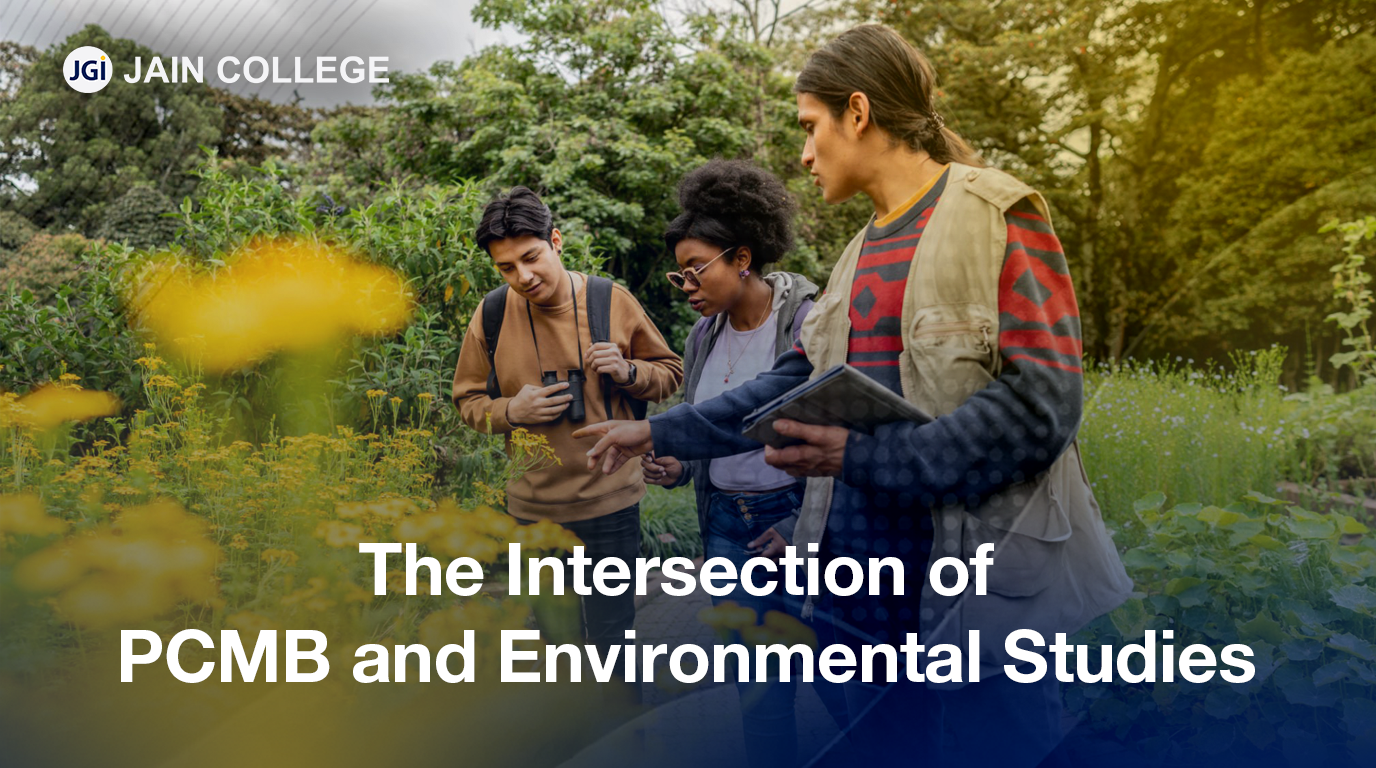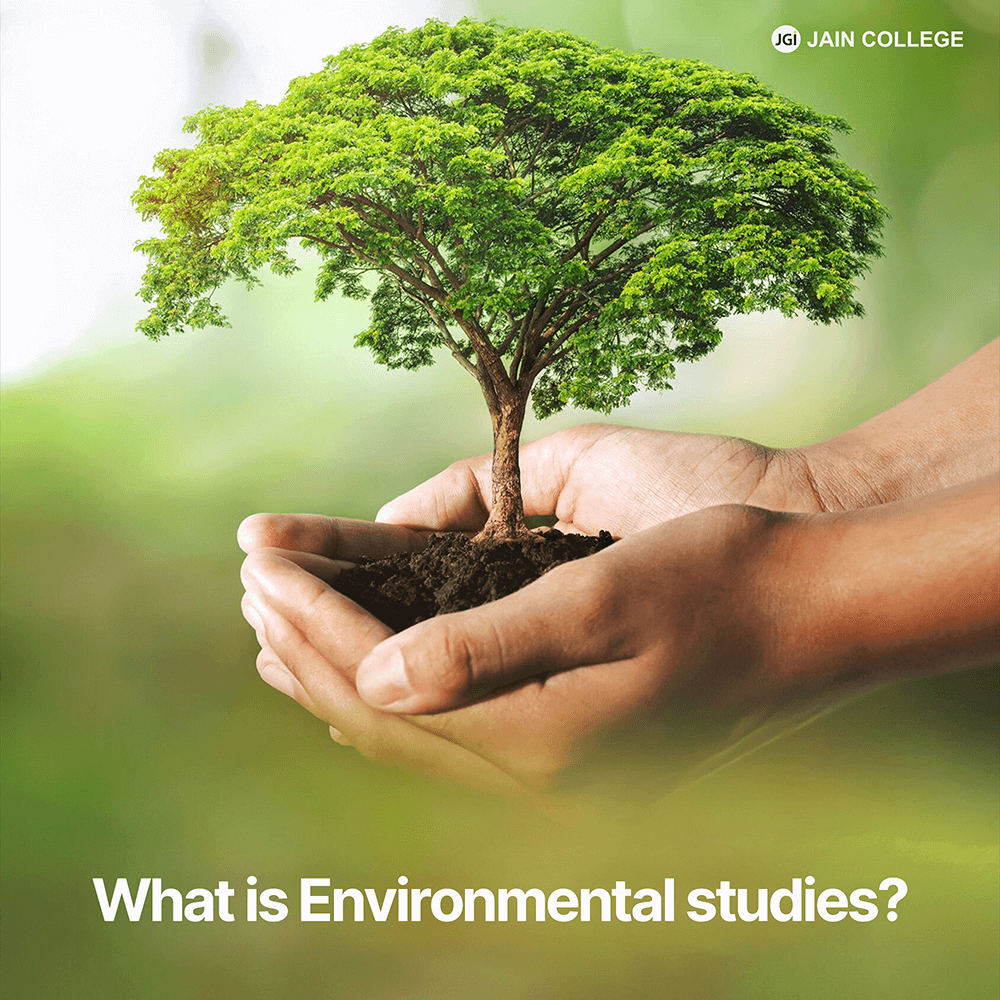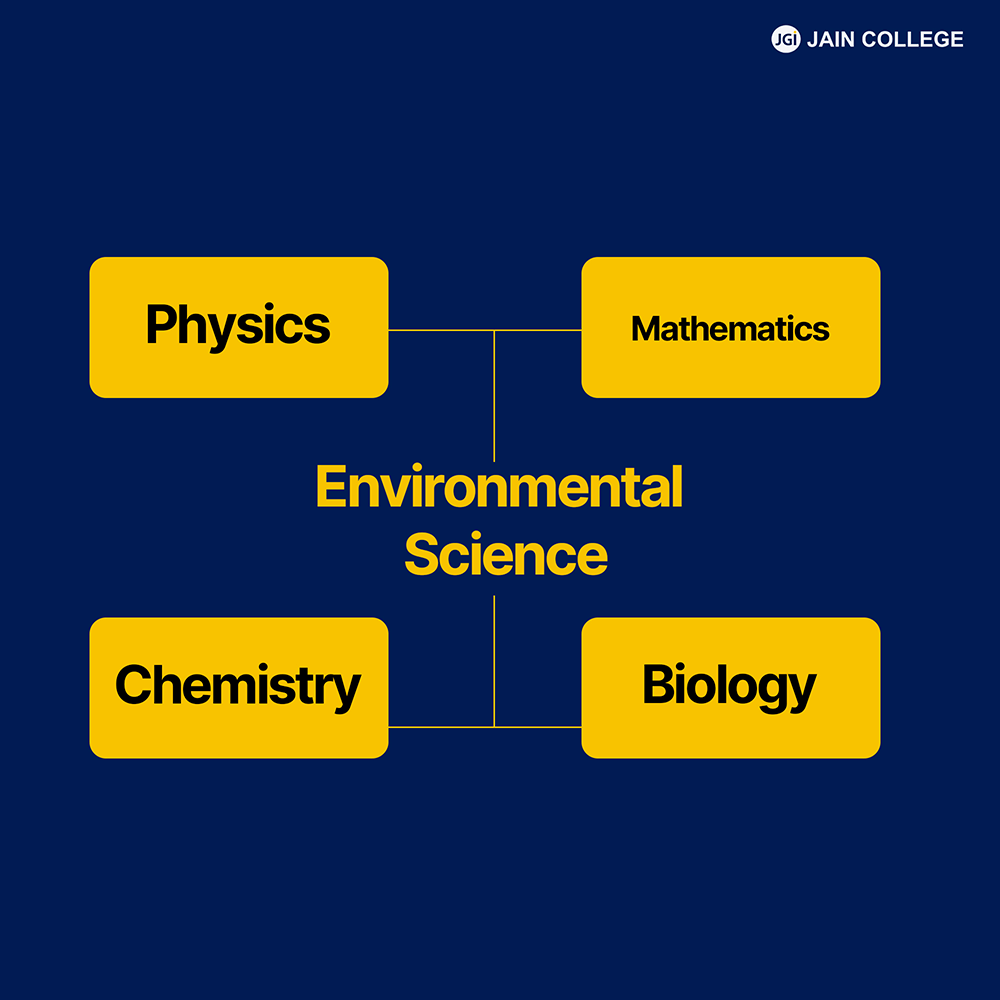
Choosing suitable subjects after high school or class 10 is not an easy task. Students who opt for PCMB (Physics, Chemistry, Mathematics, and Biology) are already on a path that gives them a broad range of scientific knowledge.
Is it possible that this unique combination could be a stepping stone to one of the most impactful and exciting fields of study: Environmental Studies?
Yes. The Intersection of PCMB and Environmental Studies
This is where an integrated course plays a vital role.
An integrated course integrates two separate academic domains of study into a single degree programme.
But How PCMB Prepares Students for Environmental Studies?
In today’s world, environmental challenges like climate change, pollution, and biodiversity loss are at the forefront of global issues. As a PCMB student, they are already equipped with the foundation to make a real difference.
Now, we will explore how students with Science backgrounds align with the emerging field of Environmental Science and why it is the perfect time to dive in.

Choosing Environmental Studies after PCMB can be a rewarding decision, especially for those with a passion for protecting the planet and understanding complex environmental issues.
Choosing Environmental studies after the PUC with the PCMB combination provides students with:
Climate change, air and water pollution, resource depletion, and biodiversity loss are some of the greatest challenges facing humanity today. By combining the knowledge of PCMB with environmental studies, students are equipped to tackle these issues head-on.
It is impossible to systematically categorise environmental issues. It requires knowledge from all scientific fields, including Physics, Chemistry, Biology, and Mathematics. PCMB students already have a diverse toolkit to work with, which allows them to take a holistic approach to environmental problems. Whether students are analysing ecosystems, understanding climate change, or designing sustainable solutions, their multidisciplinary background will serve as a powerful asset.
With the increasing focus on sustainability, jobs in environmental science are in high demand. Careers in environmental consulting, renewable energy, waste management, and environmental policy are on the rise. NGOS, government agencies, research institutions, and corporations are all looking for professionals who can combine scientific knowledge with a passion for the planet.
PCMB students have the opportunity to apply their scientific knowledge to real-world environmental problems. Whether it is developing more hygienic technologies, conserving wildlife, or promoting sustainable agricultural practices, their career will directly contribute to preserving the Earth for future generations.
The answer lies in the very nature of the subjects students are studying after their class 12 PCMB.

Physics teaches students how systems work, whether it is the flow of energy or the principles of thermodynamics.
In Environmental Studies, these concepts are crucial for understanding renewable energy systems (like wind, solar, or hydropower) and climate modelling.
Physics also helps in analysing the pollution dispersion in the atmosphere or water bodies, making it easier to find solutions to energy crises and environmental hazards.
Chemistry is at the heart of understanding pollution and developing solutions.
For example: Using chemical principles in analysing air and water quality, test soil samples for pollutants, or even design eco-friendly materials. Whether it is waste management or water purification, Chemistry will play a huge role in finding sustainable solutions.
Mathematics is key to modelling environmental systems.
From predicting population growth in endangered species to calculating carbon footprints, data analysis and statistical modelling help in making informed decisions about the environment. Mathematical equations help assess the impact of deforestation and climate change, and even predict the outcomes of conservation efforts.
Biology connects with the natural world, from understanding ecosystems to studying the behaviour of living organisms.
Environmental Biology is a core aspect of conservation science and sustainability, focusing on biodiversity, the impact of human activity on ecosystems, and the preservation of endangered species. Biology also connects to ecotoxicology, where students learn how pollutants affect living organisms.
Choosing PCMB provides students with a strong foundation in both the physical and life sciences. When they apply this knowledge to the growing field of Environmental Studies, they will open doors to a future where students can make a lasting impact.
Whether through scientific research, policy-making, or creating innovative solutions, students' ability to understand the complex interactions between humans and the environment will place them in a prime position to help build a sustainable world.
So, are you ready to combine your scientific knowledge with your passion for the planet? The world needs fresh ideas, innovative solutions, and environmental heroes like you.
Let’s get started today!
Shape Your Future with JAIN College's Integrated Programmes!
Keep reading our blogs for further information on the intersection of PCMB and environmental studies.
Frequently Asked Questions (FAQs)PCMB (Physics, Chemistry, Mathematics, and Biology) provides a strong foundation for understanding the science behind environmental issues. From studying ecosystems in Biology to analysing pollution through Chemistry, students' PCMB skills are perfect for tackling environmental challenges.
With a PCMB background, students can explore careers like Environmental Scientist, Sustainability Consultant, Ecologist, Environmental Data Analyst, or work in Renewable Energy. The knowledge students gain from PCMB helps in research, policy-making, and hands-on environmental protection.
PCMB delivers students a diverse skill set. For example, Biology helps them to understand ecosystems, Chemistry aids in analysing pollutants, Physics is crucial for understanding environmental technologies, and Mathematics is essential for understanding climate change and environmental data.
Yes! Many universities offer a B.Sc. in Environmental Science, Environmental Engineering, or Environmental Studies as a post-graduate option. Your PCMB foundation will give you an edge in understanding complex environmental systems and technologies.
PCMB helps you approach environmental problems from multiple angles. You can apply mathematical models to predict climate change, use chemistry to assess pollution levels and apply biological knowledge to preserve biodiversity and natural resources.

JAIN PU College, a part of the renowned JGI Group, is committed to empowering students with quality education.
Beyond academics, the college ensures its online content reflects the same standard of excellence. Every blog and article is meticulously vetted and proofread by subject matter experts to ensure accuracy, relevance, and clarity. From insightful educational topics to engaging discussions, JAIN PU College's content is crafted to inform, inspire, and add value to its readers, reflecting the institution's commitment to intellectual growth and innovation.
View all Blogs